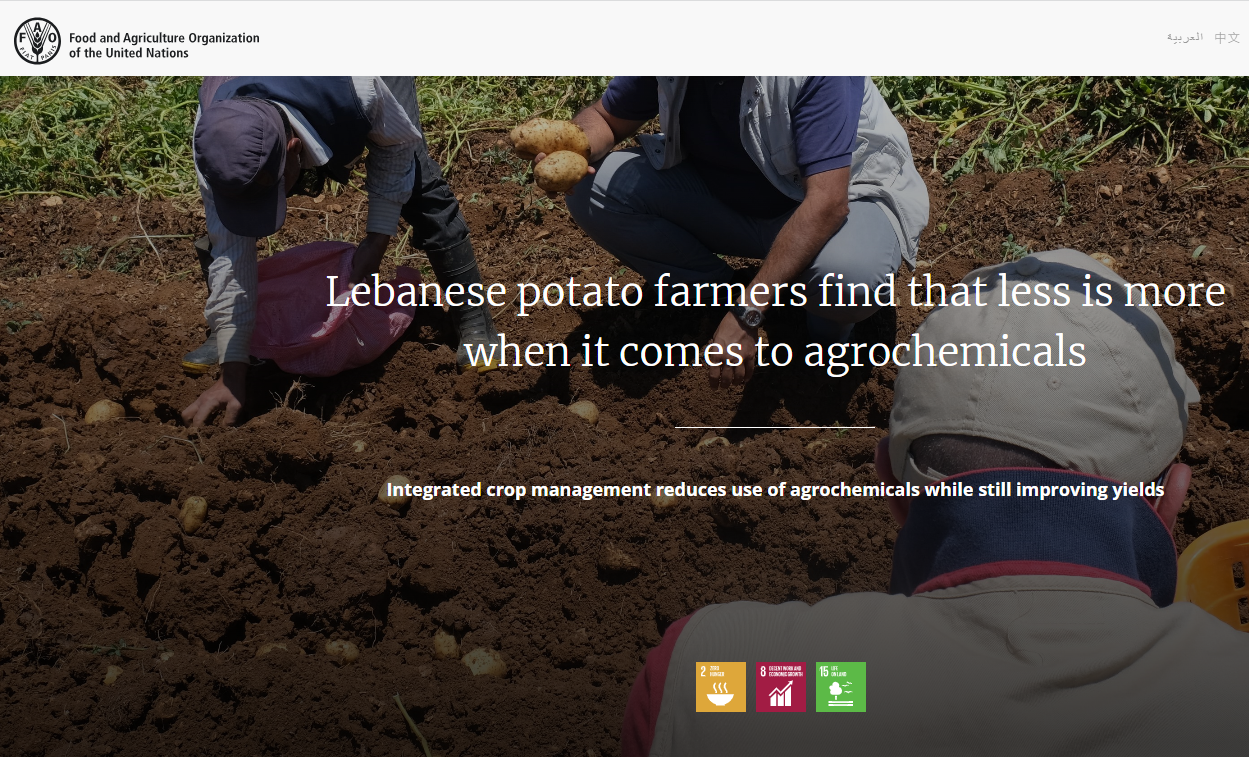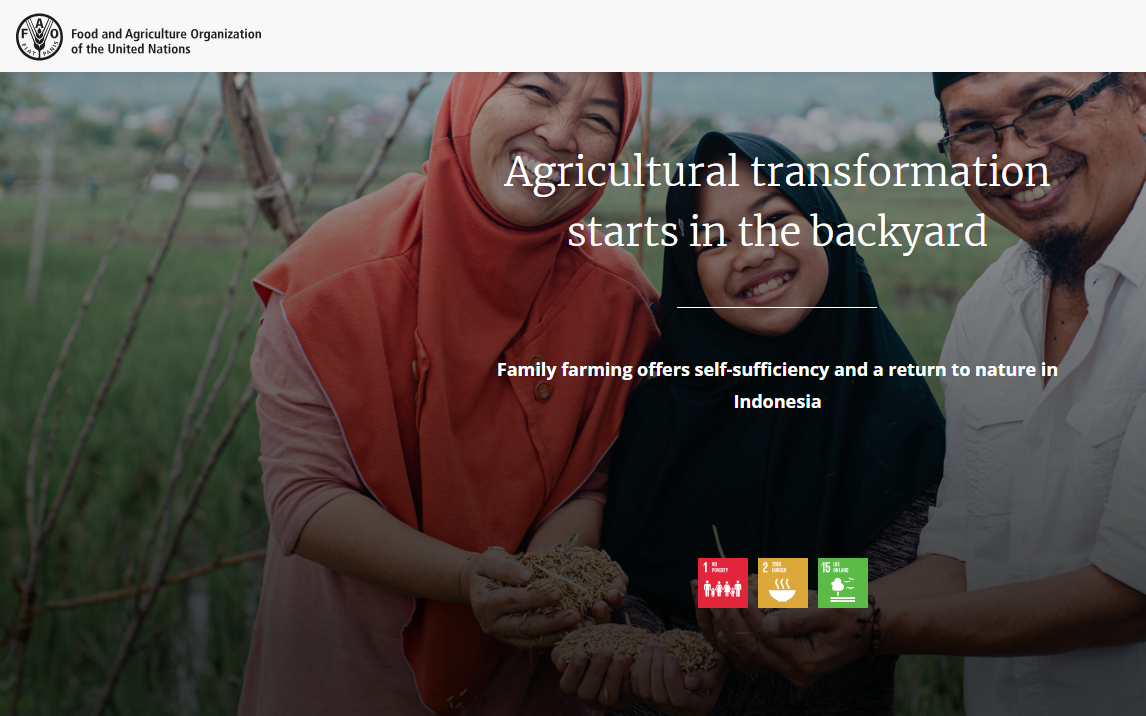Knowledge Hub

Seeds of Sovereignty shares the stories of African communities embarking on a journey to revive their traditional seed diversity, and take back control over their food systems.
Agritourism Promotes Food Traditions in Palau Advancing Gender Equality and Protecting the Environment Through Agritourism in Small Island Developing States
2022
Author(s): Food and Agriculture Organization of the United Nations (FAO)
With its distinctive heart-shaped leaves, taro is traditionally cultivated by Palauan women in plots of land around the shores of this tiny Pacific country. The root crops provide a source of starch and have historically served as a symbol of wealth and an object of ceremonial exchange.

Lebanese Potato Farmers Find That Less is More When it Comes to Agrochemicals: Integrated Crop Management Reduces Use of Agrochemicals While Still Improving Yields
2021
Author(s): Food and Agriculture Organization of the United Nations
Traditionally, farmers in Lebanon depended on chemical fertilizers and pesticides to manage plant nutrition or plant pests and diseases. Most farmers believed that increasing the quantity of chemical fertilizers would increase the yields of their crops.
The Politics of Knowledge: Understanding the Evidence for Agroecology, Regenerative Approaches, and Indigenous Foodways
2021
Author(s): Global Alliance for the Future of Food
Indigenous Peoples’ food systems promote the equitable distribution of resources and power, and support Indigenous identities and values. Food-generative practices are often localized, making use of communal resources and supported by traditional governance systems. Exchange is often barter-based or founded on reciprocal agreements. Indigenous Peoples’ lands, waters, and resources are often used, managed, or governed collectively as a common resource under community-based management. Indigenous Peoples’ systems of collective ownership of resources and food sharing can thus support inter- and intra-community cooperation, the cultivation and maintenance of shared identities, and healthy, resilient, and culturally appropriate food systems.

Agricultural Transformation Starts in the Backyard: Family Farming Offers Self-Sufficiency and A Return to Nature in Indonesia
2021
Author(s): Food and Agriculture Organization of the United Nations
Nissa Wargadipuras’s earliest memories involve learning how to live with nature. Her childhood home’s backyard in the hilly town of Garut, West Java was a little forest where her father planted vegetables, herbs and fruits. Her mother produced traditional medicine from the plants for their family and their neighbours.
Indigenous women, daughters of Mother Earth
2020
Author(s): Food and Agriculture Organization of the United Nations (FAO)
This document presents some of the main challenges that indigenous women face and provide recommendations to eliminate the barriers that prevent indigenous women from achieving their full potential and their ability to contribute to the achievement of the 2030 Agenda for Sustainable Development.
Recommendations on Sustainable Development of Indigenous Tourism
2019
Publisher/Organisation: World Tourism Organization
This book underscores the appeal of Indigenous cultural heritage to tourists and encourages responsible, consultative tourism development while meeting the rising interest in indigenous cultures.

With the introduction of imported, hybrid crops, many farmers across Nepal have stopped growing indigenous crops altogether. Agriculturalist Kushal Poudel is hoping to change that by reintroducing native crops through age-old farming techniques.
IFAD Policy on Engagement with Indigenous Peoples: 2022 update
2022
Publisher/Organisation: International fund for agricultural development
IFAD has updated its policy on engagement with Indigenous Peoples to work with them as equal partners, focusing on co-creating strategies and investments based on Indigenous perspectives, with the Indigenous Peoples' Forum serving as the primary engagement platform and the Indigenous Peoples Assistance Facility supporting community-level initiatives alongside IFAD's financial investments

Local varieties often cope better with drought and other stresses, and outperform modern varieties when grown under ecological conditions.



